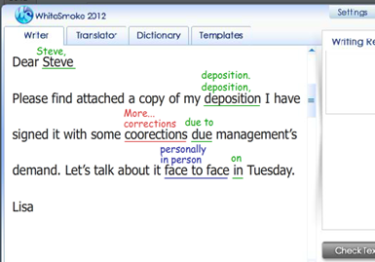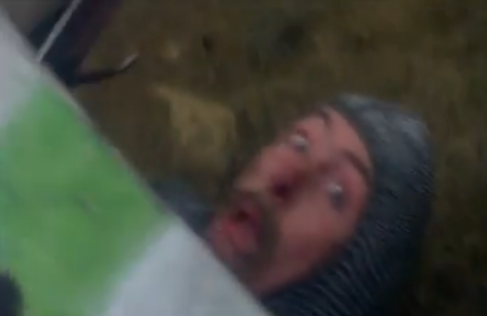For my fiction writing class I have decided to write a story of a suspense and scary nature. I have been thinking a lot about what is scary and what makes a story scary. I thought opening a discussion on this subject would be beneficial and interesting.
I am a big fan of horror classics such as Edger Allen Poe and H.P. Lovecraft. Modern tales just don’t do anything for me. The only thing I find scary about books by Steven King, for example, is the picture on the back cover. Well, that and the price tag.
What separates these classics from modern tales? I’m not sure. It could possibly be the fact that these stories took place in another time. A time where people were a thousand times more superstitious than the present.
One of my favorite scary movies is Signs directed my M Night Shamalalala. It was effective because they did not show the aliens till the very very end. Their was a scene where Mel Gibson encounters one while peeking under a door and cuts of its finger. This was a very creepy scene. What could be more scary than the unknown?
What do I find scary? Losing family/friends. Being so far in debt that I cannot afford to live. Losing my cats.
Story Plot #1: Man has lots of bills to pay and on the way to the bank to deposit his money is robbed. On his way home he learns his entire family, friends, and cats were killed in an auto accident! He…
Yawn. That obviously does not work. I suppose it could if done right, but it might be a difficult task and probably would not become the Great American Novel.
What else scares me? Disease. That one perks my eyebrow. Darkness. Ooooh, now we are getting somewhere. Perhaps getting a reader to identify with the character and doing bad things to them? I think I am on the right track now.
Story Plot #2: A character becomes infected with a disease that feeds on light. He must live in complete darkness to avoid becoming sick. The problem is that wherever he goes someone keeps producing a light of some sort, which causes him to start to wither and lose his sanity. To survive he resorts to killing people…
This isn’t bad. It still isn’t perfect obviously. It would be interesting to write from his point of view. Speaking of witch, what point of view is best for horror fiction?
Test #1: Jim cautiously walked down the dark hallway. He wanted to be sure not to walk into whatever it was he was hearing.
Test #2: I cautiously walked down the dark hallway. I did not want to stumble into whatever it was that I was hearing.
I submit that being in first person is the winner in this case. Seeing things directly through a characters mind is more compelling than seeing over his shoulder so to speak.
This brings us to another facet of writing. Telling vs. showing. It is obviously a lot more dramatic to describe how the point of a knife surfaces from beneath a man’s chest, he gurgles the blood that has reached his throat, and takes his last step before collapsing than to say: Ted was stabbed. He died.
There is a great playwright adage that is definitely pertinent to horror fiction. “Get your hero up a tree, throw stones at him, then get him down.” The cool thing about horror stories is that it can be the stone that gets the character down! How many Poe and Lovecraft stories ended with less than desirable circumstances for the hero? Quite a few.
To sum it up I will list all that we have learned:
1. Use characters and a time that fit the situation. Retelling Frankenstein or Dracula in modern times can be done, but I do not believe that they could be ever as effective.
2. Write solid characters that the readers care about. If the hero is a loser that a reader cannot identify with or care about then a reader probably will not care when said character falls and impales himself on the dull scissors he was carrying.
3. Make internal things happen to the characters that would scare a person in real life. Delving into traits of the mind such as sanity and superstition are quite effective.
4. Move suspense slowly to a boil. Actually we didn’t cover this one earlier. I just realized that it is worth mentioning.
5. Write in the first person so readers can be closer to the hero/heroine.
6. Show what happens in the story, don’t tell.
7. Don’t be afraid to be mean to the main character and definitely pile on his troubles.
8. (Related to number 7) Be descriptive in your writing. Use all five senses (even a sixth one in some cases!) But don’t overdue the gore! Leave that to Steven King…
9. Have some mystery involved in your story. Have your bad guys do things that are confusing but later make sense.
10. Don’t reveal the evil in its entirety until the very end.
As always I encourage everyone to comment. Tell me what you find scary! Tell me what I may have missed!






